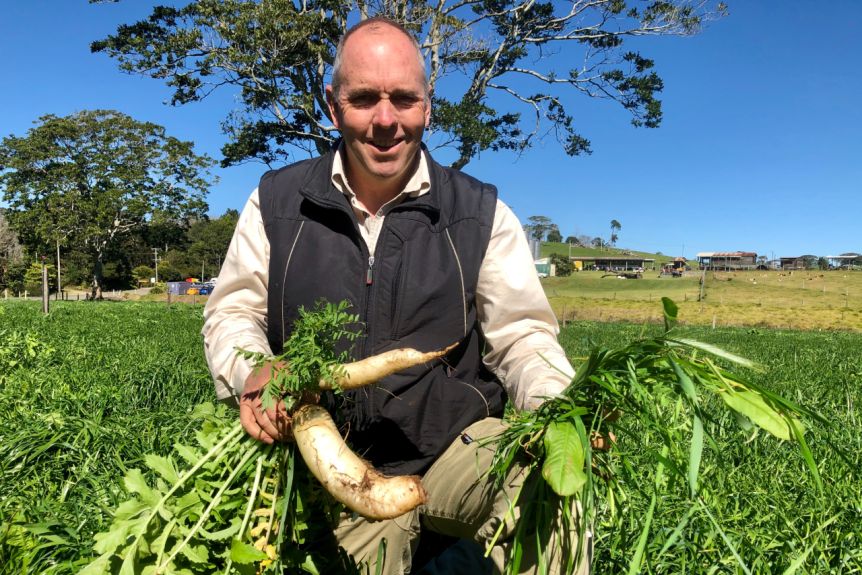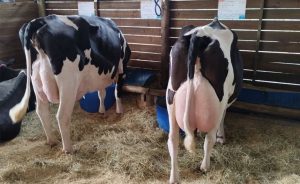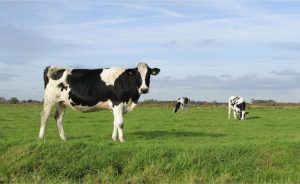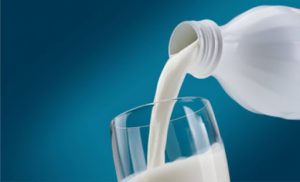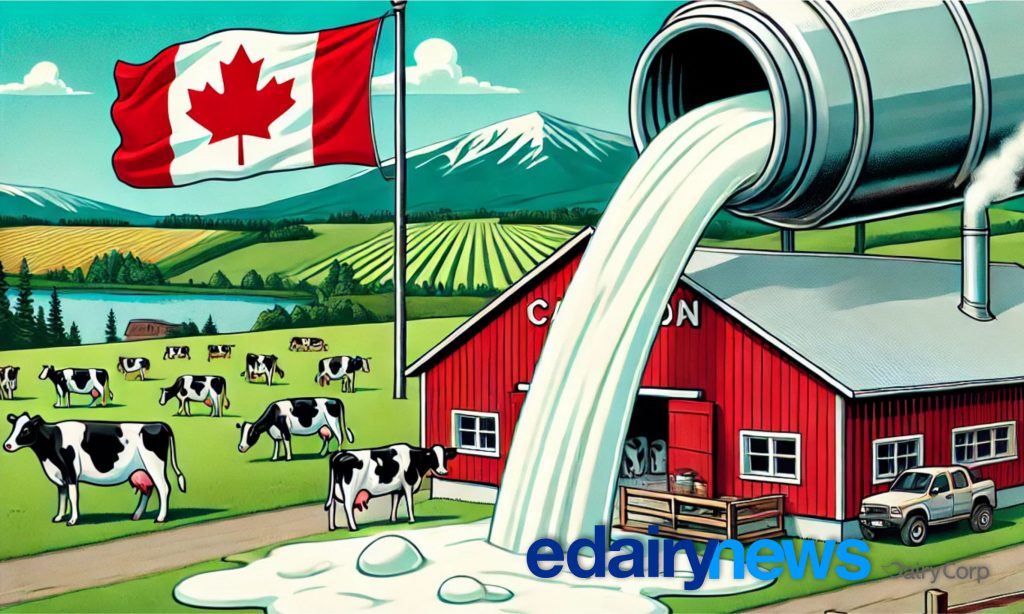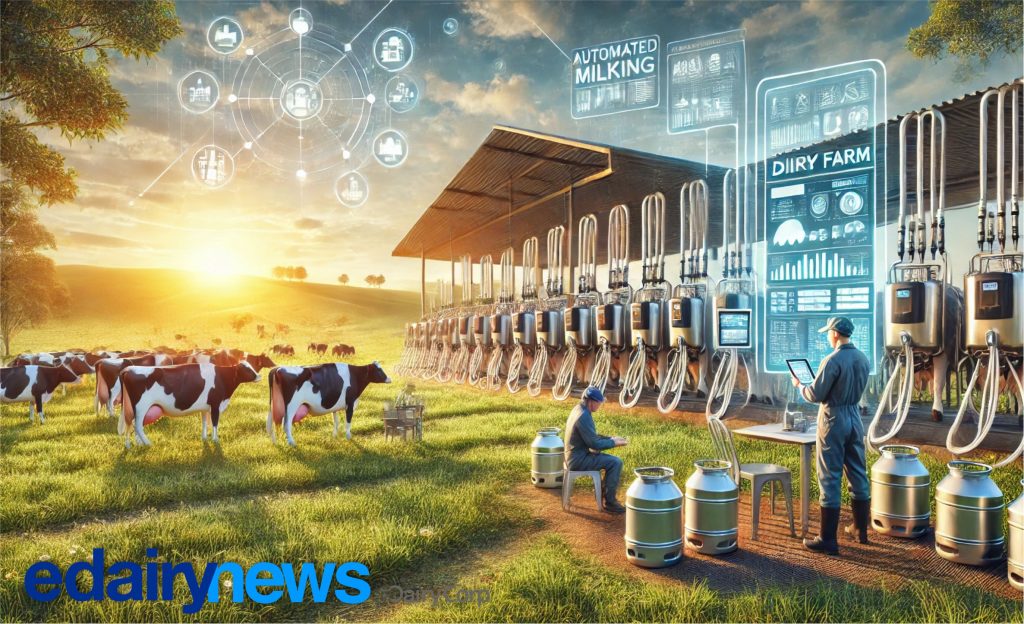Key points:
The pasture trial was conducted on a 3.2-hectare irrigated block and increased milk production by one to two litres per cow a day
The field was sown with mixed pasture seeds and fertilised with a biological spray
Funding is being sought to extend the trial to other farms
In four months, Keith Hopper said it had significantly reduced feed costs while increasing production by one to two litres of milk per cow a day.
A combination of multi-species pasture seed was sown at the end of the March, including legumes, grasses, cereals, and brassicas like the large daikon radish.
Conventional chemical fertilisers were replaced with liquid applications of composted chicken manure and microbes on the 3.2-hectare irrigated trial block.
Keith and Sonya Hopper own the home farm, next to his brother Ross and sister-in-law Sally’s high profile independent milk processing plant in the Sunshine Coast hinterland.
Mr Hopper admitted he was “absolutely sceptical” when first approached by John Moor of GrowMoor Biological and Danny Hood from Global Boss International.
“But these guys persisted for about three months and in the end I gave up and said well come on up and tell me what you’ve got and we’ll go from there … and these are the results,” Mr Hopper said.
“For the first time I feel there is hope for the dairy industry.”
Dry land trials
Mr Hopper has already expanded the biological farming trial after increasing milk production and getting twice the amount of feed from land where he traditionally grew rye grass.
“We’ll probably push a bit into a bit of dry land country next year to see how it goes,” he said.
“We did a little patch this year.”
Sixth-generation farmer John Moor emigrated from South Africa, where he still owned a dairy of 850 milking cows.
Over 20 years he converted his farm from a conventional chemical and synthetic fertiliser operation into a biologically driven business and now works as a biological farming consultant.
“Most of us are focusing in the dairy industry on things we can’t control and that’s farm gate milk price,” Mr Moor said.
“The processors will pay what the processors will pay; all we can do as farmers is drop the cost of production.
“Pasture is the cheapest food you can put down a cow’s throat and on our farms in South Africa we’ve dropped the cost of production between 400 to 500 per cent — 70 per cent just on fertiliser — water use is down 35 per cent.”
Mr Moor estimated that the trial had taken hundreds of dollars a day off Mr Hopper’s feed costs and, combined with increased production, could add more than $100,000 gross annually to the business.
Fifth-generation farmer Danny Hood said his Rural Boss biological fertiliser was made using a composted chicken mature and included bacteria and microbes to improve the soil and reduce nutrient run-off.
“Once you get your soil biology happening, you’ve got a far greater water retention and then you’ve also got less of your nitrates coming out of your soils,” Mr Hood said.
As part of a collaboration with Griffith University, the pair planned to apply for government funding to extend the trials to other farms and planned a Sunshine Coast regional dairy project.

